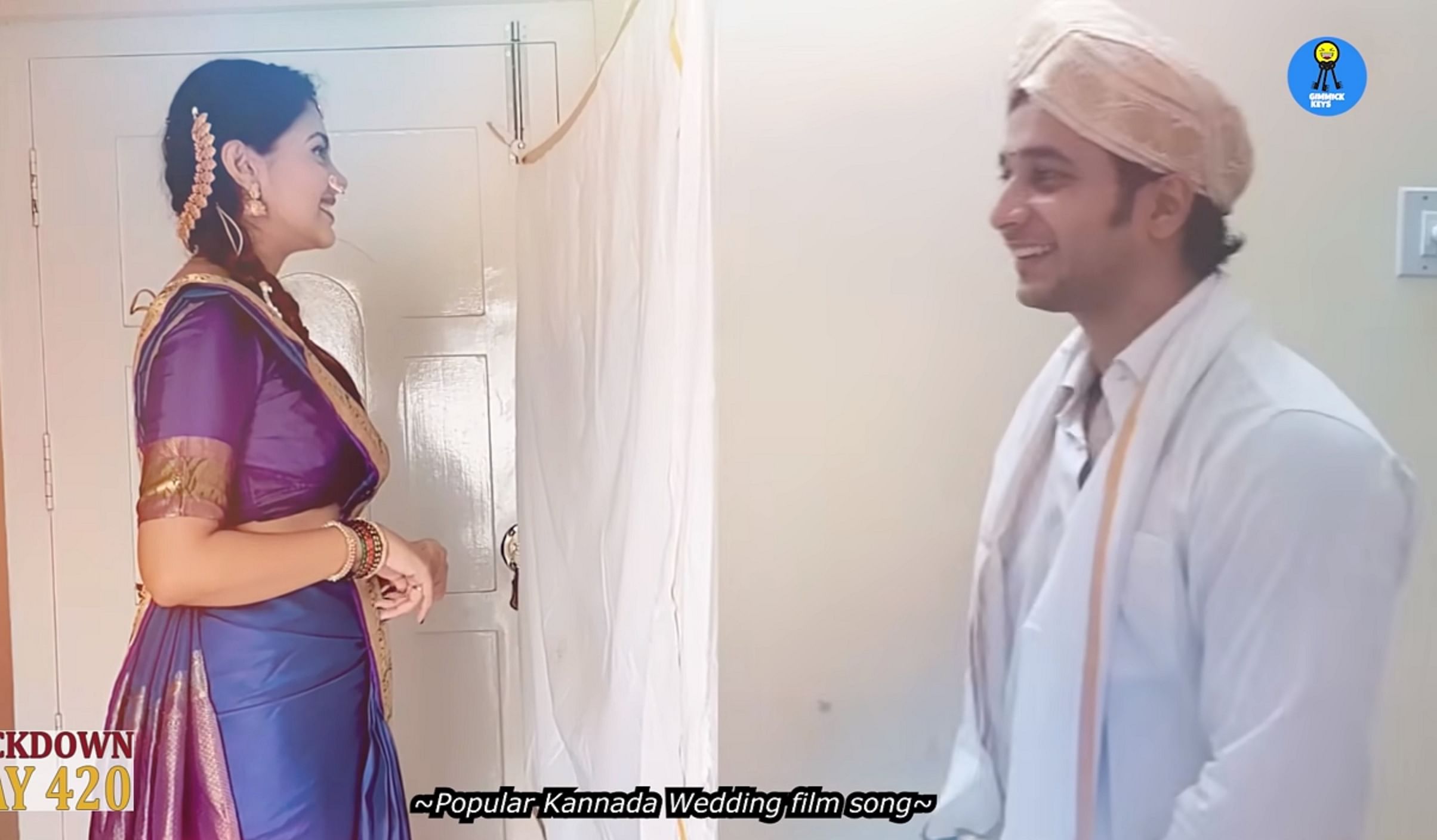
The lockdown has prompted several Kannada filmmakers to direct short films remotely. Here is a list of some films, and how they went about it.
Dir: Roopa Rao
Silent Passage
Roopa Rao, director of the critically acclaimed feature film 'Gantumoote', made 'Silent Passage', based on a video call between two people.
It was a conversation with a friend she hadn't spoken to for a while which triggered the story.
"Many stories come to one's head but some need immediate attention. This was a story which came in a format that could be told immediately," she says.
Roopa explained the concept to actors Rakesh Maiya and Shwetha Gupta, and practised the lines over WhatsApp video calls.
"One couldn't read out from a script, the call scenes had to look natural. We rehearsed several times, for the actors to know when to emote and how. They had to record the audio and sync it later," she says.
Such projects demand several takes. "New techniques now explored could be used in the future, and they could even help in bringing down the costs of making a film," she says.
Dir: Santhosh Gopal
Lockdown Marriage Story
Santhosh Gopal, director of popular short film 'Silk Board A Traffic Love Story', directed 'Lockdown Marriage Story' and 'Love You' during the lockdown. The films were inspired by real life stories from across the globe.
"One is about a couple who fall in love and get married during the lockdown, and the other is about a family stranded in different parts of the world," he says.
Directors like to be on the spot, but in such videos they have to explain the minutest details to the actors, Gopal says. “I searched for films and videos to explain the expressions in each scene, and followed them up with several phone calls," he says.
He found intense scenes calling for multiple retakes.
Dir: Ram Manjjonaath
Sanitizer
Ram Manjjonaath wanted to direct a film based on the pandemic. The result was 'Sanitizer', a four-minute film on hygiene.
"When I thought of the film, I had not thought of whom to approach for editing. I used Celtx software for screen writing and Videopad Editor for editing. My actors, Deepak and Soumya, had experience in acting but had never shot a film by themselves. They had to do framing and makeup with the help of family members at home," he says.
Dir: Kiran Vaneil
The Death Room
Kiran Vaneil has made several corporate films, but making 'The Death Room' was something else. Released in early May, it is based on a conversation between a businessman and a doctor, and talks about Covid-19 warriors.
"The lockdown was bogging us all down and we wanted to do something to nurture creative thinking. Actors shooting their own scenes was challenging and making them understand how to shoot each scene was intense but fun," he says.
Dir: Padmaja Rao
Ondu Giftina Kathe
This Kannada film spanned three countries. Scripted and directed by well-known actor Padmaja Rao, it was shot on iPhone cameras in India, Canada and the US. The light-hearted film was released on April 25 on YouTube and later shown on Kasturi TV. Padmaja and Praveen D Rao played the lead in a film where cross-connections end in a happy new friendship.
DIY for filmmakers
Want to make a short film remotely, but don't know how to go about it?
Here's what to do:
- Ideating: A good idea is key. Think of a story that can be shot remotely and in restricted situations.
- Actors: Select actors who you can communicate with easily. Fresh actors willing to reshoot scenes are also good.
- Technology: Use video conferencing tools like Zoom or WhatsApp for rehearsals.
- Voice dubbing: Sound can be a challenge, so record lines on a voice recorder or phone as a backup.
- Editing: Stitch the scenes together with Adobe Premiere Pro or free software like Videopad Editor.
(Inputs from Santhosh Gopal, Ram Manjunath and Kiran Vaneil)